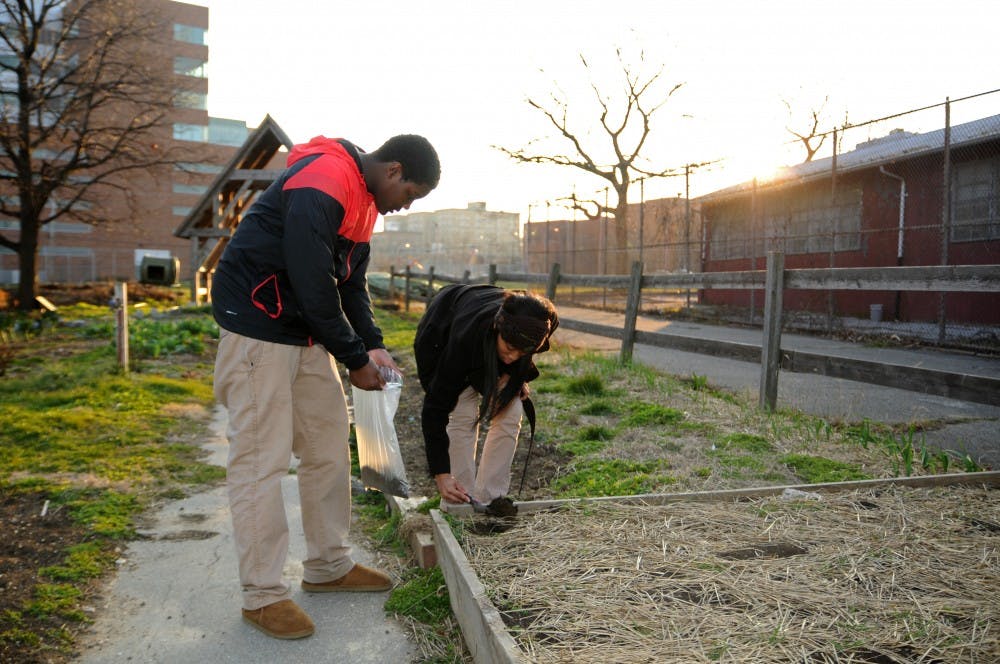
The winners of last fall’s Green Fund grants are seeing their projects come to fruition.
Eight projects were awarded either a one-time grant or loan by Penn’s Green Fund, a fund set up as a component of the Climate Action Plan to encourage new sustainability practices on campus.
Among this year’s winners include a bike-sharing pilot program, a collection of ozone washing machines and an organic farming initiative.
In this feature, we take a closer look at some of these projects.
PennCycle
For College junior Chris Cruz, one thing that Penn has been missing is a comprehensive bike-sharing system.
The idea for PennCycle came to Cruz in the summer of his freshman year.
Fast-forward a few years and — along with the help of College sophomore Madison Roberts and Wharton sophomore Alex Rattray — Cruz has been able to make his idea a reality.
PennCycle, which is now part of Penn Student Agencies, will begin in March with a pilot program run at Hill College House. After paying a $10 membership fee, students and staff can choose from 20 bikes to use whenever and wherever they want.
But the student founders have plans beyond the business side.
“Another aspect is that we’re hoping to make PennCycle not just a service but make it a social group,” Roberts said. “We’re hoping to fill the void of a Penn bike club.”
Ozone Washing Machines at Pottruck
Though it may seem like a relatively new discovery, ozone technology has actually been in existence since the 19th century, according to second-year Master of Environmental Studies graduate student Marissa Rosen.
Last semester, Rosen successfully pitched and received a grant to start a pilot program in Penn’s Pottruck Health and Fitness Center. The program will install an ozone generator in Pottruck, which will be connected to the industrial-sized washing machines that are currently used to clean towels.
Rosen initially came up with the idea as part of an Academically Based Community Service course she was taking over a year ago.
“I go to the gym and I use the towels. I figured they had to be doing a ton of laundry because of all the patrons they have every day,” Rosen said. “So I wanted to do something related to that.”
Once implemented, the ozone generator will kill nearly 100-percent of germs, Rosen said. It will also reduce the amount of energy, detergent and bleach being used to wash towels.
“Not only are we consuming less, but we’re dumping less pollutants into our water stream,” Rosen said.
Franklin’s Farmers
Penn’s Netter Center for Community Partnerships is teaming up with a group of local high-school students to bring organic farming into an urban setting.
Through Franklin’s Farmers — another Green Fund grant recipient — high-school interns with the Netter Center’s Agaston Urban Nutrition Initiative will teach Penn students and staff about organic farming.
While the program has its own garden located near 37th and Filbert streets, Franklin’s Farmers will encourage its participants to start their own gardens closer to home.
The project will provide seeds and basic planting tools to those who sign up, in addition to workshops that will teach participants the basics of farming.
“Folks in the Penn community would learn about urban community farming and, in exchange, maybe they would donate produce to help improve food security in West Philadelphia,” director of the Urban Nutrition InitiativDanny Gerber said.
The Daily Pennsylvanian is an independent, student-run newspaper. Please consider making a donation to support the coverage that shapes the University. Your generosity ensures a future of strong journalism at Penn.
DonatePlease note All comments are eligible for publication in The Daily Pennsylvanian.




